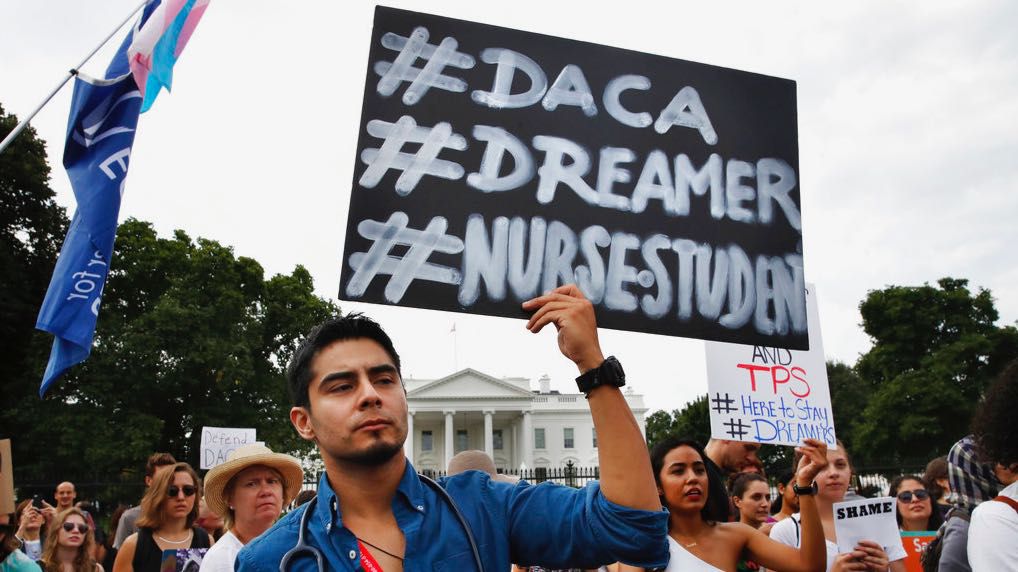America’s Dreamers are immigrants who have spent their lives growing up in a country that’s theirs in all but an official nationality. Though they’ve been granted rights and benefits through the Deferred Action for Childhood Arrivals program — including the ability to secure a work permits, social security number and driver’s license — DACA recipients hace been unable to receive any federal benefits.
But a new announcement by the Biden administration is expected to ease the burdens they face. On Friday, the White House announced a new rule that will allow DACA recipients to become eligible for Affordable Care Act coverage, projected to help about 100,000 people gain health insurance.
Friday’s action builds on work that President Joe Biden started alongside his former boss, President Barack Obama, when their administration announced the DACA program about 12 years ago.
"Since then, DACA has provided more than 800,000 Dreamers with the ability to work lawfully, pursue an education, and contribute their immense talents to make our communities better and stronger," Biden said in a statement.
"I’m proud of the contributions of Dreamers to our country and committed to providing Dreamers the support they need to succeed. That’s why I’ve previously directed the Department of Homeland Security to take all appropriate actions to 'preserve and fortify' DACA," the statement continued. "And that’s why today we are taking this historic step to ensure that DACA recipients have the same access to health care through the Affordable Care Act as their neighbors."
The DACA program covers people who fit a very specific set of qualifications, including having entered the U.S. illegally before their 16th birthday, lived in the U.S. continuously, completed high school or been honorably discharged from the military and owning a criminal record free of serious crimes. Essentially, people who were brought to the U.S. as children, have lived within the law and have been chasing their version of the American Dream — hence the name "Dreamers."
"They've spent most of their lives here. They are our neighbors, they are college graduates, small business owners, STEM professionals, essential workers, and so much more. Many have family members who are U.S. citizens, and they deserve support just like all of us," said White House Domestic Policy Advisor Neera Tanden.
"By providing new opportunities for quality, affordable health care, this rule will give DACA recipients that peace of mind and opportunity that every American deserves," she added.
Research has indicated that DACA has been a boost to the American economy, helped suher DACA-eligible immigrants into the workforce and helped boost DACA recipients out of poverty. All told, about 800,000 people have benefitted from the DACA program, according to White House officials.
"This announcement will bring relief to more than 100,000 people and help them thrive while working to achieve their aspirations," Vice President Kamala Harris said in a statement.
The new rule updates a handful of terms to make DACA recipients eligible for federal and state-level health care plans, closing a coverage gap, a senior White House official told reporters. Previously, most other people with deferred action status were eligible for coverage through the ACA, while DACA recipients weren’t. Now, with this change, DACA recipients who aren’t already eligible for health care through their job may now be able to begin applying for ACA coverage through the federal HealthCare.gov website and state-based marketplaces with a special 60 day enrollment period for newly-eligile individuals starting Nov. 1.
"Dreamers, as DACA recipients, are currently three times more likely to be uninsured than the general U.S. Population, and individuals without health insurance are less likely to receive preventative or routine health screenings. They delay necessary medical care, and they incur higher costs and deaths when they do finally seek care," said Health and Human Services Secretary Xavier Becerra. "So making dreamers eligible to enroll in coverage will improve their health. And we'll be and strengthen the health and well being of our nation and our economy."



